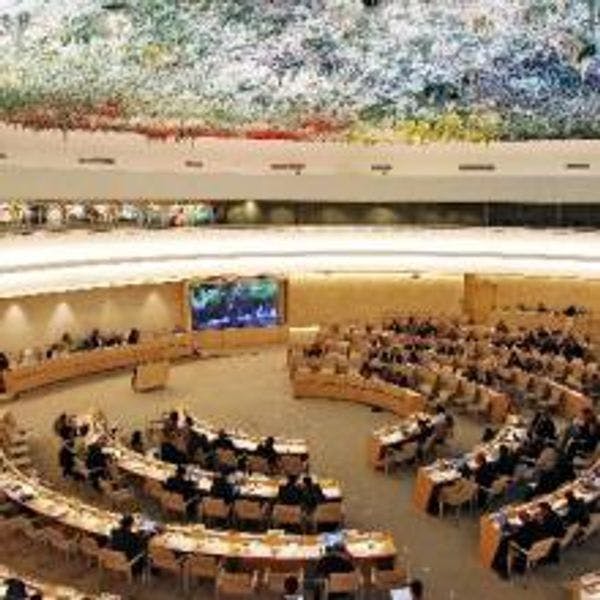La red EHRN y la asociación ASTAU realizan una declaración sobre derechos humanos y políticas de drogas en Ucrania ante una sesión del Consejo de Derechos Humanos de la ONU
Las declaraciones se centraron en la política de drogas de Ucrania y sus consecuencias para los derechos de las personas que usan drogas en el país.Más información, en inglés, está disponible abajo.
Suscríbase a las Alertas mensuales del IDPC para recibir información sobre cuestiones relacionadas con políticas sobre drogas.
Universal Period Review (UPR) pre-sessions are held to discuss the human rights situation of States two months prior to their review by the Working Group. The purpose of these pre-sessions is to enable NGOs to meet county delegations to the UN. For delegations, these meetings offer them the opportunity to be briefed by NGOs about the human rights situation in the State under Review.
During the Pre-sessions for UPR 14th session on August 31, Simona Merkinaite, the advocacy and policy officer at EHRN and Olga Belyaeva, president of Association of Substitution Treatment Advocates of Ukraine (ASTAU) and community representative at the EHRN Steering Committee made statements on the drug policy their consequences on the rights of people who use drugs in Ukraine.
The statement made by Simona Merkinaite was based on the joint EHRN submission with the Canadian HIV/ADS Legal Network and International HIV/AIDS Alliance in Ukraine and drew the attention of the country delegations to the issue of inconsistency in HIV/AIDS related policies in Ukraine (the submission can be found at Human Rights Council 106th session resources). On one hand, the Government amended the HIV legislation, including harm reduction, including substitution treatment and needle and syringe programs into the national response to HIV/AIDS. On the other hand, the current legislation allows criminalizing possessing of used syringes, while the law enforcement practices result in abuse of rights of people who use drugs as well as service providers, who are subjected to law enforcement mistreatment. The text of the statement can be found here.
In turn, Olga Belyaeva drew attention to the issues in implementation of drug treatment programs, namely opioid substitution treatment (OST). The practices of implementation of OST programs (including limited geographical scope, fixed working hours of the sites, no possibility to take medicine home, etc) result in ineffective delivery of treatment as well as make lives of clients completely dependable on programs. Apart from that in June 2012, the Ministry of Health adopted Order No 200 which introduced new regulations regarding OST in Ukraine that institutionalize such practices as well as introduce unrealistic client criteria. For example, a person can be denied the OST treatment for any misconduct, for example for administrative offence, such as crossing the street on red light. The text of the statement can be found here.
The session between the Government of Ukraine and the country delegations is planned for October 24, 2012. As a result of the review, the country missions will provide recommendations to the State reviewed on the ways to improve the human rights situation in the country. During previous review of Ukraine in 2008 no recommendations were given on the issue of HIV/AIDS to Ukraine, however, different Un bodies, including Committee on the Rights of the Child and the Committee on Economic, Social and Cultural Rights recommended the Government of Ukraine to make drug substitution therapy and other HIV prevention services more accessible for drug users. Click here for more information on the process.
Keep up-to-date with drug policy developments by subscribing to the IDPC Monthly Alert.
Temas
Regiones
Perfiles relacionados
- Eurasian Harm Reduction Network (EHRN)
